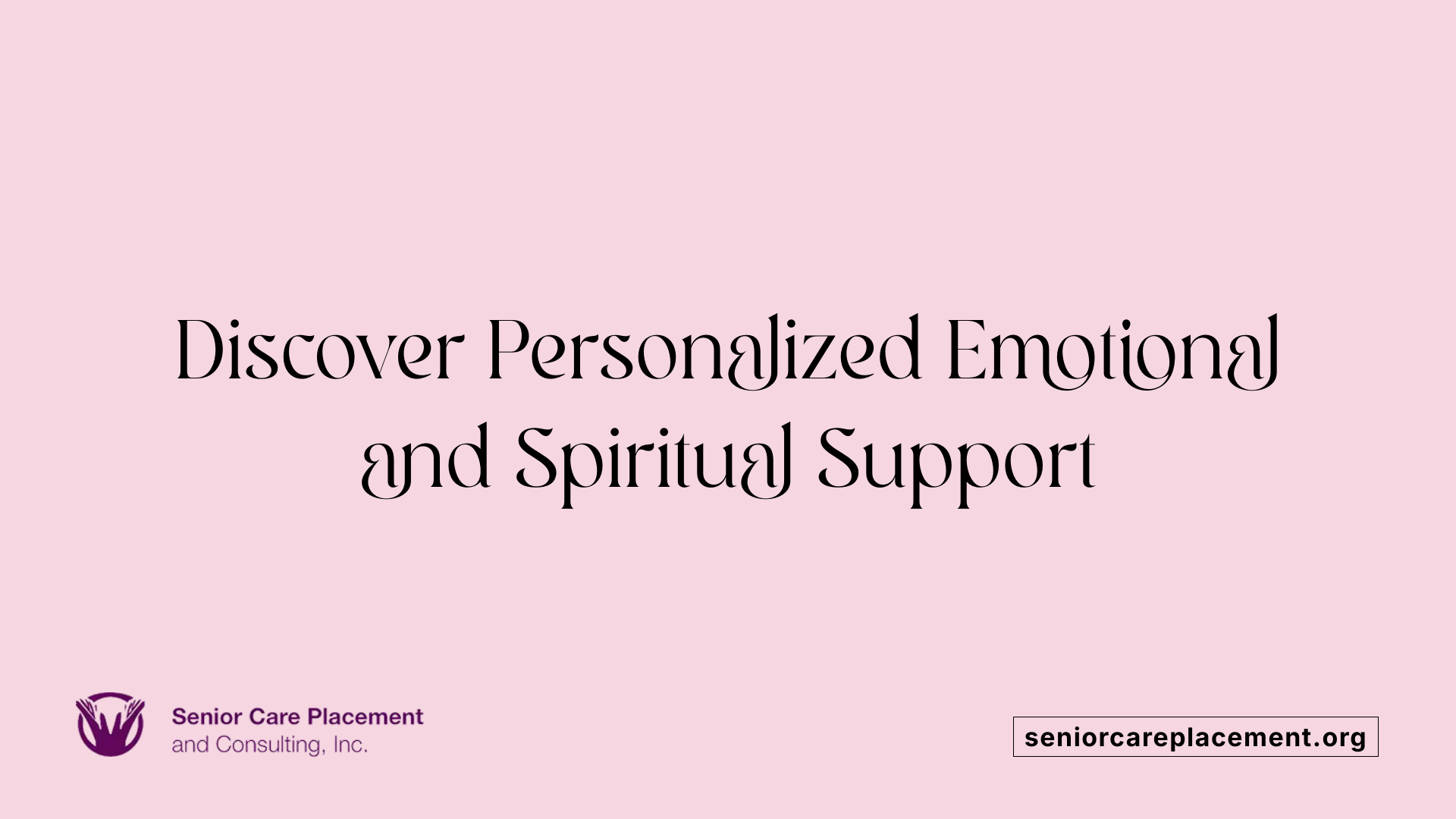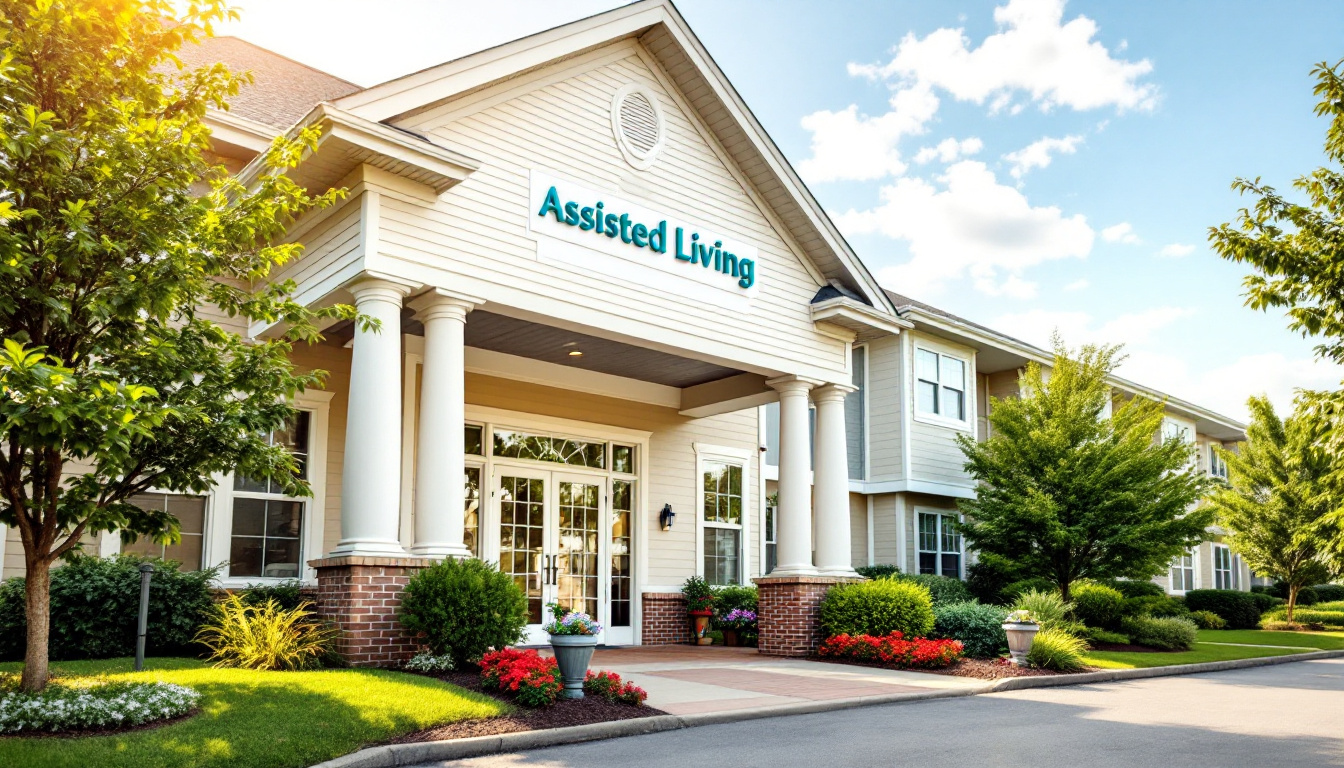How Hospice Services Provide Emotional Support for Families
The Compassionate Heart of End-of-Life Care: Supporting Families Beyond Physical Comfort

Understanding the Holistic Approach of Hospice Care
Hospice services offer more than just medical treatment; they provide a comprehensive support system that addresses the emotional, spiritual, and psychological needs of both patients and their families. Recognizing that end-of-life experiences are deeply personal and challenging, hospice care emphasizes holistic well-being, fostering peace, acceptance, and connection during a difficult journey.
Personalized Emotional and Spiritual Support in Hospice Care

How are individualized care plans created for emotional and spiritual support?
Hospice providers develop personalized emotional and spiritual care plans based on each patient's unique needs, preferences, and life experiences. These plans involve thorough assessments conducted by social workers, counselors, or chaplains to understand the patient’s psychological, cultural, and spiritual background. The care strategies may include specific activities like distraction techniques, introspection exercises, or emotional discussions tailored to promote comfort and peace. Some patients benefit from creative therapies such as music or art therapy, while others find solace in spiritual rituals or religious practices.
Hospice teams continuously update these plans as needs evolve, ensuring flexible and responsive support. This personalized approach helps patients maintain a sense of autonomy and dignity during their final days, fostering emotional well-being and spiritual peace.
What role do chaplains and spiritual counselors play?
Chaplains and spiritual counselors are vital in providing spiritual support within hospice care. They offer guidance that respects diverse beliefs, facilitating conversations about faith, purpose, and life reflections. These professionals often conduct prayers, scripture readings, or spiritual rituals that help alleviate anxiety and foster acceptance. They also assist patients in exploring existential questions, finding meaning, and reconnecting with their spiritual or religious communities.
Support from chaplains and spiritual counselors is not limited to religious contexts; it also encompasses non-denominational support, respecting each individual's beliefs and values. Their presence affirms the importance of spiritual well-being as part of holistic care and helps families find comfort amid difficult emotions.
How are spiritual, religious, and existential needs addressed?
Hospice care addresses spiritual, religious, and existential needs through tailored interventions that support emotional resilience and hope. Spiritual care providers work closely with patients to identify their specific beliefs and values, creating environments where they can express doubts, fears, or hopes.
Practices may include facilitating religious rituals, prayer, or spiritual conversations that align with the patient's faith. For those without religious affiliations, hospice offers existential support such as life review, meaning-making activities, or mindfulness exercises.
By respecting diverse spiritual perspectives, hospice teams aim to provide comfort, reduce feelings of despair, and promote a sense of peace. These services often extend to families, helping them cope with their own grief and find ways to honor their loved one's spiritual journey.
Methods and Strategies For Emotional Support in Hospice
 Hospice services prioritize emotional support as a vital component of holistic care. They employ a variety of strategies to help both patients and their families cope with the emotional and spiritual challenges of end-of-life situations.
Hospice services prioritize emotional support as a vital component of holistic care. They employ a variety of strategies to help both patients and their families cope with the emotional and spiritual challenges of end-of-life situations.
One of the main approaches involves counseling and support groups. Trained professionals, such as social workers, counselors, and chaplains, provide individual counseling and facilitate support groups. These platforms foster shared experiences, reduce feelings of isolation, and help families find community and understanding during difficult times.
Integrative therapies are also widely used to promote emotional well-being. Music therapy, art therapy, pet visits, and journaling serve as outlets for expression and relaxation. These therapies help patients process feelings, reduce stress, and find moments of peace amidst challenging circumstances.
A crucial aspect of hospice emotional support is facilitating meaningful goodbyes. Care teams assist families in creating opportunities for patients to share their feelings, reflect on their lives, and say farewell in a comforting environment. They guide families through legacy projects, life reviews, and farewell rituals that honor the patient's life and foster emotional closure.
Families can adopt several coping strategies to manage their stress. Accepting and openly expressing their emotions through conversations, writing, or reminiscing helps process grief. Quality time spent with loved ones—listening to music, sharing stories, or engaging in gentle activities—builds connection and comfort.
Self-care is equally important. Caregivers are encouraged to maintain personal hygiene, nourish themselves with healthy foods, keep physically active, and pursue hobbies that bring relief from stress. Seeking support through counseling, community resources, and hospice support groups provides additional emotional resilience.
Supporting families during this time involves both practical assistance and emotional nurturing. Hospice teams work to create spaces where families feel safe to share their feelings, ask questions, and find hope, ultimately aiding in emotional adaptation and healing.
The Role of Care Teams in Supporting Families

What roles do social workers, counselors, and spiritual care providers play in supporting families in hospice?
In hospice care, addressing the emotional, psychological, and spiritual needs of families is as vital as managing physical symptoms. An interdisciplinary team, including social workers, counselors, and spiritual care providers, collaborates to provide comprehensive support tailored to each family's unique situation.
Social workers are central to the support network. They conduct detailed assessments of patients and families, identifying social, emotional, and practical needs. Their work involves advocating for patient preferences, helping families understand their options, and connecting them with community resources such as transportation, home care, and financial assistance. These professionals also facilitate difficult conversations about care goals, provide grief counseling, and support family reconciliation.
Counselors offer personalized emotional support, guiding families through the complex feelings associated with end-of-life care, grief, and loss. They employ therapeutic techniques to reduce anxiety and depression and often incorporate spiritual discussions as part of their counseling, helping patients and families find hope and resilience.
Spiritual care providers, such as chaplains, focus on addressing existential questions and fostering spiritual comfort. They respect diverse beliefs, offering prayers, scripture readings, or simply listening to spiritual concerns, which can alleviate fears, promote peace, and give a sense of meaning during challenging times.
How does a holistic, person-centered approach benefit families?
These professionals work together within a holistic, person-centered model of care. This approach recognizes each individual’s values, beliefs, and cultural background, ensuring that emotional and spiritual support align with the patient’s life story and family dynamics. It promotes dignity, peace, and emotional resilience, helping families navigate their journey with understanding and compassion.
By integrating these services into all aspects of hospice care, the team creates a supportive environment where families feel heard, valued, and cared for. This collaborative effort underscores hospice’s commitment to treating more than just physical symptoms—they treat the person as a whole, honoring their emotional and spiritual needs right up to the end.
The Essential Role of Emotional and Psychological Care in Hospice

Why is emotional and psychological care so important in hospice services?
In hospice care, attending only to physical symptoms would leave a significant part of the patient’s experience unaddressed. Emotional and psychological support form the heart of holistic hospice care, helping patients find comfort, peace, and a sense of meaning during their final life chapter.
Hospice providers recognize that facing terminal illness brings complex feelings such as fear, anxiety, depression, and guilt. Addressing these emotions through counseling, spiritual guidance, and therapies helps reduce distress and enhances overall well-being.
Personalized emotional support plans are created for each individual, often involving specialized hospice counselors and chaplains who discuss spiritual and emotional matters. Techniques like distraction, introspection, and emotional conversations serve to foster trust, safety, and a supportive environment.
Supporting emotional health is also crucial for guiding families through end-of-life decisions, family dynamics, and legacy planning. It provides them reassurance and understanding, making difficult moments more manageable.
Activities such as music therapy, art, journaling, and pet visits help patients process feelings and find moments of serenity. These integrative therapies are tailored to each patient’s preferences and needs.
Beyond patients, emotional support extends to family members through grief counseling, support groups, and camps for children coping with loss. This comprehensive approach helps families navigate the grief process, offering ongoing comfort and healing.
Creating spaces for sharing emotions, healing conversations, and remembrance ensures that both patients and families can experience emotional safety and connection. Spiritual care, aligned with individual beliefs, further provides meaning, comfort, and acceptance.
The emphasis on emotional and spiritual care helps improve quality of life, encouraging personal growth and reconciliation. It supports the emotional resilience of both patients and families, making hospice care not just about physical comfort, but about addressing the whole person.
In conclusion, emotional and psychological support are vital components that deepen the hospice experience, creating a compassionate environment where individuals can confront end-of-life challenges with dignity, hope, and peace.
Fostering Dignity, Connection, and Peace in End-of-Life Care
Hospice services play a vital role in supporting families emotionally and spiritually during one of life’s most challenging periods. Through personalized care plans, interdisciplinary team collaboration, and ongoing bereavement support, hospice providers help families process grief, find hope, and create meaningful last moments. By addressing the total pain—physical, emotional, social, and spiritual—they nurture resilience, foster connection, and uphold the dignity of patients and families, ensuring that the journey towards end-of-life is infused with compassion, understanding, and peace.
References
- How We Provide Emotional Support for Hospice Patients - 3HC
- 10 Essential Ways Hospice Can Provide Emotional Support to ...
- Hospice Care | Texas Health and Human Services
- What Emotional Support Does Hospice Provide To Families?
- Addressing Spiritual and Emotional Needs in Hospice Care
- How Does Hospice Care Support Families and Loved Ones?
- Some Ways Hospice Social Workers Support Patients, Families
- Emotional Support in Hospice: What You Need to Know
- The Importance of Family Support for Adults in Hospice





































































































